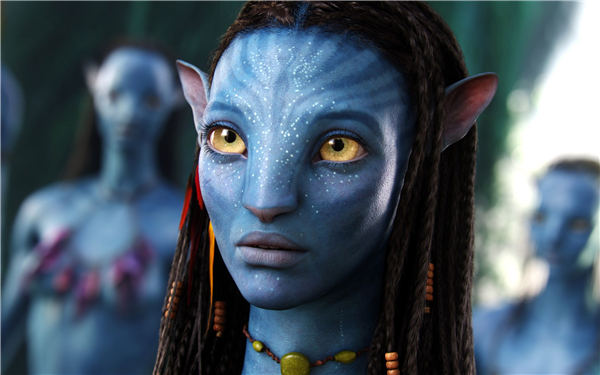
Ji Guanlin is known as "the voice of stars" in China. The 35-year-old has dubbed for some of the best-known roles in both foreign and Chines movies and TV series. Avatar's lithe tribal princess Neytiri, Titanic's bold and lively character Rose and Zhenhuan, China's famous on-screen royal concubine, are some examples.
Her voice, having morphed into the virtual throats of a whole range of characters, is clear and mellow. But in person, the performer comes to life through her animated eyes and movements. A "let me see" is said with an involuntarily tilted head or impatient "hey" is mimed with curled lips and a frown.
Her acting, and not just the vocal part of it, will next materialize in Little Door Gods, an animation film about Chinese celestial beings' modern-day survival set to be released on Jan 1, 2016. Ji is the flower fairy.
The character develops based on Ji's facial expressions, movements and the personality she breathes into it.
"We had Ji filmed with three cameras in the recording process so her acting could transfer onto the character," Yu Zhou, the film's producer, says. "We're doing it the Hollywood way. We chose her not for her fame but because she will present the character most naturally."
"Animation gives you more creative freedom," Ji says. "The better your acting is, the more fulfilled the character is."
She has a growing portfolio of voice-over for animation projects now, as that segment of the film industry blossoms in the country. Last year, animation films recorded 40 percent growth at the box office.
"There are many more opportunities for voice artists these days," says Ji, adding that dubbing for TV plays, animations and video games has been growing fast in the country.
"The younger generation of voice artists has a lot more possibilities," she says. "We have our own hardcore fans."
Ji leaped to fame in 2013 after voicing the title character in Legend of Zhenhuan, a highly rated period drama that followed a young woman's rise from innocence to a powerful queen.
"It's my most influential character by far. It not only introduced me to the public but made our profession visible to all," Ji says.
"From then on, people began to realize how voices can contribute to drama."
For a scene to really move audiences, the voices sometimes must carry a mood beyond what's seen on screen.
"Sometimes the most suitable voice for the scene sounds exaggerated, but that works on big screen," Ji says.
Her voice has become a "chameleon", where a change in tempo, mood, breaths and a host of other tweaks make her sound true to every new character.
For foreign characters, sometimes the lines are modified so that gags and emotions are quickly grasped by Chinese viewers.
"It's like touch a magic cube," she says. "The texture may stay in a range, but you get to create different voices by changing the attributes.
"Most of all, when you successfully lead the viewers in a scene, they forget about who the voice belongs to."
Ji was brought up in a family of Peking Opera singers. Her earliest memories include her parents discussing how stage scenes evolve and how dialogues are delivered.
"That could explain why acting comes naturally to me," Ji says.
"I was young and used to doze off during their (parents') performances, rehearsals and discussions. I didn't know it was to help me today."
With more than 10 years in the profession that continues to transform, Ji says her only wish is to try out more with her voice.
"I always look for breakthrough characters - it's only when you have tried a variety of roles that you can improve."





